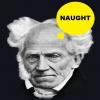 Submitted by Jaded Philosopher on
Submitted by Jaded Philosopher on

Image by Gordon Johnson from http://Pixabay.com
I. The Puzzle: Why Aren't Academic Philosophers Wise?
Etymologically, philosophy is the study of wisdom. In the popular imagination, philosophers sit cross-legged, uttering cryptic profundities through long white beards. Real philosophy professors spend considerable time reading texts from the "wisdom traditions", and on ethics, the meaning of life, and the fundamental nature of reality. So you might think that the average philosopher would be at least a little bit wiser than the average non-philosopher.
Since the wisdom-o-meter is still in early development, we don't yet have solid scientific evidence on this question. But my impression is that academic philosophers in the United States, as a group, are no wiser than others of their social class -- no wiser on average than chemistry professors, high school teachers, lawyers, or city administrators.
In other words, we don't seem to profit much, in terms of personal wisdom, from our philosophical reading and extended reflection on big-picture questions. Why is this?
One easy answer that will suggest itself to many professional philosophers is this. Most of our reading and reflection doesn't concern the kinds of issues central to wisdom. A philosopher of language might spend much of their professional time reading about the reference of proper names and donkey anaphora. An ethicist might focus on textual puzzles in Kant interpretation. Wisdom might no more tend to follow from those activities than from grading high school history homework or studying sulfates.
However, I think that answer is at best partial. Although one's philosophical research might mostly concern donkey anaphora, most philosophers spend most of their professional time teaching. We teach classes like "introduction to philosophy" and "contemporary moral issues" and "meaning, truth, and value" -- and in prepping and teaching these classes, as well as sometimes apart from class, most of us do engage questions about the meaning of life and what matters most in the big picture. Substantially more than the average chemistry professor, we read and teach classic texts that ordinary people turn to as sources of wisdom. It seems that we ought to learn some wisdom from doing so. The fact that we don't, or don't seem to, thus remains a puzzle.
II. The Nature of Wisdom.
To address the puzzle, we need to think about wisdom and its sources. What is wisdom?
Here's my proposal: Wisdom is the disposition to make decent choices in a wide range of circumstances. If you tend to make poor choices, you're not wise. If you tend to make good choices but only in a narrow range of familiar circumstances and any perturbance would throw you into bewildered disarray, you're also not wise. Wisdom involves stability of good practical judgment even when circumstances turn strange.
A decent choice isn't necessarily the best choice. Only someone with inhumanly heroic insight could be disposed generally to make the best choices in a wide range of circumstances. Decency is more about avoiding blunders -- bad decisions due to panic, short-term thinking, seriously misweighing one's values, overlooking obvious considerations, or grossly misjudging people's character and intentions.
A wide range of circumstances needn't mean all circumstances. How wide a range and what belongs in the range remains an open parameter in this account. If you're a man in a culture where it's not unusual for men to be called to battle, then wisdom probably requires that you be disposed to make decent choices if called to battle. If you're not in such a culture, maybe how you'd react in battle doesn't matter so much. We can also define subclasses of wisdom by considering narrower ranges of circumstances or narrower classes of decisions: wise in matters of child-rearing or in choosing friends or in financial matters.
Being calm and giving good advice, classically associated with wisdom, aren't part of my definition, but they flow naturally from it. Panic leads to bad decisions, so if you're prone to panic, you're probably not wise. Good hypothetical thinking is crucial to good decision making, so the wise will tend to have good judgment about circumstances they aren't in; and since giving bad advice is itself a type of bad decision, it's a failure of wisdom not to know one's limits well enough to stay silent rather than misdirect others.
III. Chaos and Wisdom.
It's an unfortunate feature of the human condition that we rarely learn from other people's mistakes. We insist on making the mistakes ourselves. (This seems to be especially true of teenagers and nations.) So unless you've personally lived through a wide range of circumstances and made a wide range of corresponding mistakes, you're unlikely to have acquired the knowledge necessary to navigate a diversity of situations without blundering. Narrow, stable lives will thus tend to generate less wisdom than chaotic lives with radical changes of circumstance.
This explains your grandmother's wisdom -- grandma who grew up in Hungary, fled the Nazis, built a new life in an unfamiliar country speaking an unfamiliar language, raised five children each with their own chaos, lost her husband, almost died of cancer, knew poverty and comfort, security and uncertainty, love and betrayal.
What is pretty much the least chaotic path through our culture? The academic path. Do what your teachers tell you. Get good grades. Go to graduate school and do it some more. Get a job. Get tenure. It's extremely competitive, but the path is orderly and laid out clearly in advance. Each thing flows neatly from the next. (I set aside the increasingly common chaos of the academic job market.) The set of skills and the range of challenges doesn't change radically over the course of one's life, and there normally are few disruptive conflicts with authority. You wrote decent essays in high school. You wrote better essays in college, then in grad school, and then as a faculty member. Philosophy, literature, and math are perhaps especially narrow, even among academic disciplines. In the laboratory sciences, one at least needs also to learn to manage people and equipment. [ETA: See Marcus Arvan's interesting comment below about whether this description of the academic career path is dated.]
The solution to the puzzle, then, is this. Although one can of course learn some wisdom from reading great philosophy and thinking about profound questions, that's not a particularly good or efficient way to acquire wisdom, compared to actually living through ups and downs and weirdness and chaos. Academic philosophers with narrow, orderly life paths won't fully catch up with grandma, despite some possible modest benefits from thinking hard about Kant, Buddhism, and Montaigne.
You'll be unsurprised to learn that this post was inspired by noting my own and others' reactions to the chaos of the pandemic.
Eric Schwitzgebel
http://schwitzsplinters.blogspot.com/2020/04/wisdom-and-chaos.html
- 387 reads